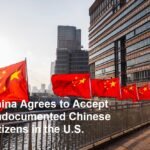China’s Ministry of Commerce has announced an investigation into PVH Corp., the parent company of renowned fashion brands Calvin Klein and Tommy Hilfiger, for allegedly boycotting products from the Xinjiang region. The ministry accuses PVH of violating market trading principles by refusing to source cotton and other materials from Xinjiang, thereby harming the legitimate rights and interests of Chinese enterprises and endangering China’s sovereignty, security, and development interests.
This move could lead to PVH being placed on China’s “unreliable entity” list, which would subject the company to penalties such as import and export restrictions, fines, and potential bans on investment within China. The investigation requires PVH to provide information within 30 days regarding its actions related to Xinjiang products over the past three years.
The backdrop to this investigation involves international scrutiny over alleged human rights abuses in Xinjiang, where China has faced accusations of detaining members of mostly Muslim ethnic groups in detention camps. In response, several Western countries, including the United States, have imposed bans on imports of Xinjiang cotton due to concerns over forced labor. PVH had previously announced in 2020 that it would cease using cotton from Xinjiang, aligning with these international concerns.
PVH has expressed surprise and disappointment at the investigation, emphasizing its compliance with Chinese laws and its commitment to resolving the issue. The company stated that it is in communication with Chinese authorities to address the concerns raised.
The potential inclusion of PVH on the unreliable entity list could have significant implications for the company’s operations in China, a key market for its brands. PVH reported substantial growth in China, with the market contributing significantly to its global sales. However, the company has been reducing its production footprint in China, shifting manufacturing to countries like Vietnam, Cambodia, and Bangladesh.
This development reflects the broader context of escalating trade tensions between China and the United States. The U.S. has imposed tariffs on Chinese goods and restricted access to U.S. markets for certain Chinese companies, citing national security concerns. In response, China has taken measures against U.S. businesses, including initiating an anti-monopoly investigation into Google and placing companies like PVH on its unreliable entity list.
The situation underscores the complex challenges multinational companies face as they navigate differing international regulations and geopolitical tensions. Companies like PVH must balance compliance with international human rights concerns while maintaining access to critical markets like China. The outcome of this investigation could set a precedent for how similar cases are handled in the future, potentially influencing the strategies of other multinational corporations operating in China.
As the investigation proceeds, it remains to be seen how PVH will respond to the allegations and what measures it will take to mitigate potential impacts on its business operations. The case highlights the delicate balance companies must maintain between adhering to ethical sourcing practices and managing relationships with key international markets amidst evolving geopolitical landscapes.













